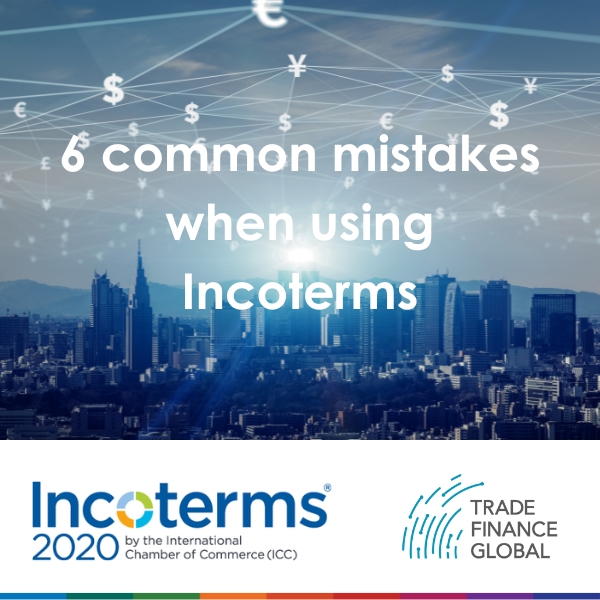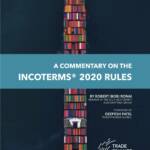6 common mistakes when using Incoterms [UPDATED 2025]


Access trade, receivables and supply chain finance
We assist companies to access trade and receivables finance through our relationships with 270+ banks, funds and alternative finance houses.
Get StartedContent
6 common mistakes when using Incoterms [UPDATED 2025]
Incoterms play a vital role in international trade by defining the responsibilities of buyers and sellers in the delivery of goods.
However, misuse or misunderstanding of these terms can lead to costly errors and disputes.
There are common mistakes and pitfalls in using Incoterms, but there is guidance on how to avoid them.
1. Misinterpreting the scope of Incoterms
One of the most common mistakes is misinterpreting what Incoterms cover. Incoterms define the responsibilities for transportation, risk, and costs, but they do not cover other aspects such as payment terms, ownership, or the conditions of the sale contract.
Traders often assume that Incoterms address all aspects of the trade agreement, leading to confusion and disputes.
Example
A buyer might assume that by using a certain Incoterm, the seller is responsible for any payment delays or product quality issues, which is not the case.
For instance, using CIF (Cost, Insurance, and Freight) does not mean the seller is responsible for ensuring timely payment or addressing product defects upon arrival.
How to avoid
Clearly distinguish between Incoterms and other contractual terms and ensure that all aspects of the trade agreement are covered in the sales contract and separate from Incoterms.
Explicitly define payment terms, product specifications, and quality assurance measures within the main contract.
2. Incorrectly assigning responsibilities
Another common error is incorrectly assigning responsibilities between the buyer and seller.
Each Incoterm defines who is responsible for transportation, loading, unloading, and customs duties. Misallocating these responsibilities can lead to additional costs and delays.
Example
Using EXW (Ex Works) when the buyer lacks the capability to manage the entire logistics process can result in unexpected expenses and logistical challenges.
EXW places the maximum burden on the buyer, including collecting goods from the seller’s premises and handling all subsequent transportation, export, and import duties.
Incoterms facilitates smoother logistics and enhances trust and cooperation between trade partners.
- LEARN MORE ABOUT INCOTERMS
- LATEST INCOTERMS NEWS















